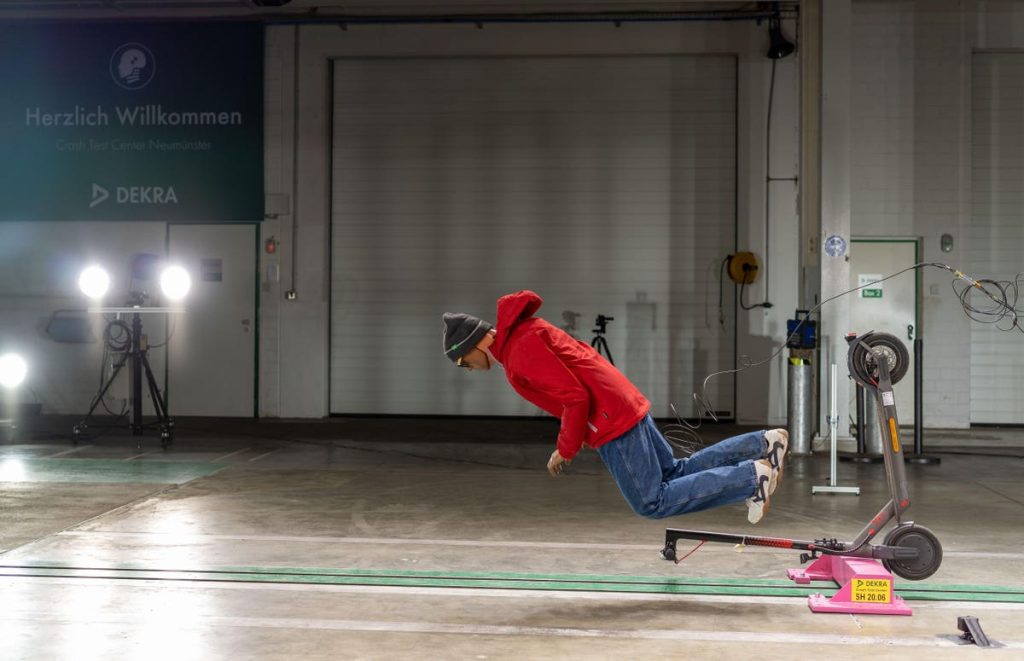A rider’s head is particularly at risk in e-scooter crashes, and it’s a significant problem. The micro-mobility mode is rapidly increasing in popularity as a means of transportation and for fun, and along with that growth comes a jump in the prevalence of crashes. In a crash test designed to assess e-scooter (electric scooter) safety, head impact on the ground occurred in almost every case, and was often severe.
Those are the main findings of new research by DEKRA, a company based in Germany that conducts automotive testing, inspection and crash research. The goal of the testing was to evaluate head impact conditions and injury risk associated with e-scooter crashes, and to learn more about what happens to the human body during and after an impact.
“The project focused on validating this model on the basis of a DEKRA crash test,” Andreas Schäuble, a biomechanics expert at DEKRA Accident Research, said in a statement. “In the process, an e-scooter hit a curb – a common accident scenario in reality. It’s not for nothing that solo accidents without an accident opponent account for more than a third of all e-scooter accidents in the statistics.”
The analysis, part of DEKRA’s recently released Road Safety Report 2023, was developed and conducted by the safety group in cooperation with researchers from the Université Gustave Eiffel in Marseille (France) and the École de technologie supérieure in Montréal (Canada). The first paper from the joint research project, “Head impact kinematics and injury risks during E-scooter collisions against a curb,” was published earlier this month.
More than 160 individual simulated crash scenarios that differed in initial speed, angle of impact with the curb, and the size of the person on the e-scooter, were among the factors examined during the analysis. In the scenarios examined, the head was found to be particularly at risk. In almost all cases, researchers said, “there was an impact of the head on the ground with the risk of concussion.”
Some results of the study:
- the forehead hit the ground first in 44% of the simulated crash tests;
- risk of concussion was identified in nearly 100% of the cases; and
- risk of severe to very severe head injuries was shown in 90%.
“First of all,” Schäuble added,”this suggests that a common bicycle helmet could provide effective protection for the head and either prevent or mitigate the injuries in the vast majority of scenarios studied.”
Researchers said the analysis highlighted the dangers of e-scooter falls and the need to take effective action. Among the measures to address the dangers are a series of ongoing crash tests conducted by the three institutions aimed to evaluate the protective effect of bicycle helmets and inform their future design.
The results of those assessments are expected to be published before the end of the year, according to DEKRA.
For more information about DEKRA’s road safety work, click here. To read the full paper for a more detailed analysis of head injury risks in e-scooter crashes, click here.
Read the full article here










